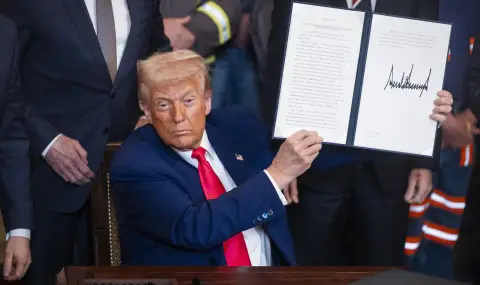The Donald Trump administration has announced that it will freeze $2.2 billion in Harvard funding. The decision is the result of the oldest university in the US refusing to comply with a number of demands that Washington sent to higher education institutions, calling them "illegal".
In this way, the university's leadership responded to the demands of employees and students to prevent attempts at interference by the Trump administration.
Harvard "will not give up its independence"
Other higher education institutions have also spoken out against executive interference in higher education. But the response of one of the most renowned universities in the world is categorical, and this confrontation raises serious questions about academic freedom in the US. "No government, regardless of party, should dictate what private universities can teach, who they can admit and hire, or what areas of study and research they can pursue," the letter from the university's president, Alan Garber, said. The university will not give up its independence and constitutional rights, Garber wrote.
On Friday, the Trump administration sent a series of demands to Boston University, demanding that it limit the rights of students and faculty, promote greater diversity of opinion, and report to federal authorities international students who violate rules of conduct. Trump wants the university to stop hiring people based on diversity and inclusion criteria that allow more blacks, women and other groups to work at the institution.
Trump's war on universities
The government accuses universities of allowing civil rights violations and anti-Semitism on their campuses. Since taking office in January, the Trump administration has taken steps to restrict and interfere in the work of higher education institutions, which critics say are direct interference and an attempt to limit academic freedom. Authorities have stopped hundreds of millions of dollars in federal research funds at universities across the country.
Other elite educational institutions such as Columbia University in New York have made concessions after being threatened by Washington and drawing criticism. Former US President Barack Obama recently urged universities to use donations or cut spending rather than comply with the administration's demands. Yale professors Timothy Snyder, Marcy Shore and Jason Stanley left the US for the University of Toronto.
Harvard's president noted that freedom of thought and research, as well as the government's long-standing commitment to protecting them, have allowed universities to contribute to a free society. The writing makes it clear that the administration has no plans to partner with the university to combat anti-Semitism "in a collaborative and constructive way," Garber added.
